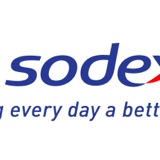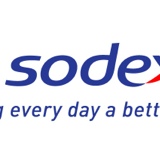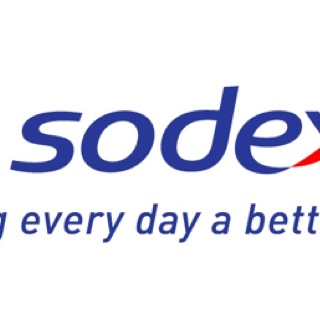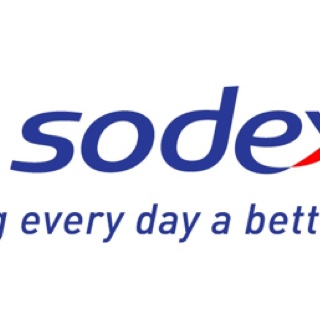Information
-
Document No.
-
Audit Title
-
Client / Site
-
Conducted on
-
Prepared by
-
Location
-
Personnel
Safety bulletin board established and current.
-
Is the OSHA job safety and health poster posted? 0.5
-
Are emergency phone numbers posted? 0.5
-
Is the safety policy statement posted? 0.5
-
Is the fire evacuation diagram posted? 0.5
-
Is there a choking first aid poster? 0.5
-
Does the unit have a poster located prominently on an employee bulletin board listing medical providers for utilization? 0.0
-
Identify and post the tornado shelter locations. 0.0
-
Do random employees know that the safety goal going forward is zero injuries? 0.0
-
Can random employee show (with a phone number, email, office, or person) who to contact for reporting a serious, immediate hazard? 0.0
-
Does District have current district safety coordinator that can be named and contacted by unit? 0.0
-
Is the Sodexo group health and safety policy signed, dated and displayed? 0.5
-
Can a random employee point out the global safety policy? 0.0
Current safety policy manual
-
Does management have a safety policy manual or can they display the electronic version within a reasonable amount of time? 1.0
-
Is management aware of their safety responsibilities per OSHA? 1.0
-
Does the unit management team demonstrate active site safety leadership? 0.5
Current OSHA recordkeeping log
-
Each injury or illness must be recorded within seven calendar days of receiving information that a recordable injury or illness has occurred. 0.5
-
On-site management must retain the OSHA 300 log, OSHA 300A, and first report of injury for five years following the end of the calendar year. 0.5
-
Is the OSHA 300 a summary posted from February 1 to April 30? 0.5
Chemical safety in the workplace
-
Does management maintain an inventory list of hazardous chemicals that is dated within last 12 months? 1.0
-
Are material safety data sheets (or SDS) readily available for each hazardous material in the workplace? 1.0
-
Are chemical containers appropriately labeled? 2.0
Established safety committee complete with documented meeting minutes for last six months
-
Does a safety committee exist? 1.0
-
Are safety committee meetings held monthly? 0.5
An occupational safety topic is reviewed each month with all employees and documented
-
Is a weekly safety message communicated to employees? 1.0
-
For the past 12 months has the management team reviewed it workplace safety topic each month with at least 90% of its employees? 2.0
-
For the past 12 months has the management team reviewed a workplace safety topic each month with 100% of its employees? 2.0
-
Are employees engaged and understand safety training topics? 1.0
-
Conduct behavior-based safety check-safe score of 100% awards the audit point. 2.0
Unit conducts monthly safety inspection with corrective action plan implemented to correct unsafe conditions or unsafe acts
-
Has unit performed monthly safety inspection to identify possible hazards? 2.0
-
Does unit management take corrective action to address possible hazards? 1.0
-
Are all toilets and washing facilities that Sodexo maintains clean and sanitary? 0.5
-
Storage room safety check-shelves and racks are of adequate strength and are secured. 0.5
-
Compressed gas cylinders stored upright position, chain or secured, and those not in use protective caps in place. 0.5
-
Products in storage are secure and not overhanging on shelves. 0.5
-
Walking coolers and freezers have functional internal door release latches and lighting. 0.5
-
All electrical cords and plugs in good condition with no missing grounds, no splices, no electrical tape. 0.5
-
Extension cords are not used in place permanently installed fixed wiring. 0.5
-
Electrical panels have minimum 36 inch of unobstructed workspace in front and are closed. 0.5
-
Slicer left unplugged and set at zero when not in use. 0.5
-
Trash compactor's, balers, or similar mechanical machines are equipped with adequate guards and safety switches. verify that the keys to the machine is removed between use to prevent unauthorized operation. 0.5
-
Are outdoor smoking areas located away from building ventilation system air intakes? 0.5
-
Handling of oil-verify the following: oil, used in deep fat fryers, is cooled down to below 110°F before handling for disposal or straining. To reduce slip hazards, smaller containers or buckets is used and covered with a lid. 0.5
-
Safe knife handling procedures are in place. 0.5
-
"No smoking" signs posted on liquefied petroleum tanks. No LP gas cylinders used indoors and LP gas cylinders guarded to prevent damage from vehicles. 0.5
Slip and fall prevention
-
Proper housekeeping must be maintained and all permanent work facilities. 2.0
-
Are walkways clear of obstructions and free of tripping and/ or slipping hazards? 2.0
-
Are walk-in freezers and cooler floors free of ice buildup, slipping, or tripping hazards? 1.0
-
No employees are observed running? 2.0
-
No improper use of ladder or unsafe climbing? 2.0
-
Are stepladders or straight ladders in good condition and of sufficient height to prevent overreaching? 1.5
-
Employees not observed carrying large materials that obstruct their vision while traveling up or downstairs? 1.5
-
Does every flight of stairs having four or more risers and all winding stairs equipped with standard railings or standard handrails? 1.0
-
Does unit management actively use approved floor hazard warning signs to prevent access to areas that expose potential dangers? 2.0
-
Do units that perform kitchen floor cleaning use wash'n walk as it's daily floor cleaner complete with deck brushing? 1.0
-
Do Sodexo employees in the food service facility where closed top, closed heel, and rubber sole, slip resistant footwear? 1.0
-
Area around fat disposal drum is kept in clean condition with no slip hazards. 0.5
-
Access and egress to and from kitchen is safe. For instance, the risk of collision is reduced through window in the door, the doors are marked as "in and out", staff is trained, etc. 0.5
-
Are standard guard rails provided wherever aisles or walkway surfaces are elevated more than 48 inches above any adjacent floor or the ground? 0.5
-
Employee parking lot and walkway leading into the workplace have adequate lighting and is free from slipping or fall hazards. 0.5
Prevention of back injuries and strains
-
Are carts or other mechanical aids used to transport heavy items or hot liquids? 1.0
-
Employees of observed pushing a load instead of pulling it? 1.0
-
No heavy items stored above shoulder height or below knees? 1.0
-
Materials and products stacked neatly and avoids overfilling racks and shelves? 1.0
-
Signs present remind employees how to lift safely. 0.0
-
Proper body mechanics observed? 1.5
Personal protective equipment
-
Completed personal protective equipment hazard assessment on file and signed by on-site management? 1.0
-
Is personal protective equipment provided and actively worn? 1.5
-
Evidence of properly maintained personal protective equipment in use? 1.0
Lockout/ tagout
-
Is all machinery, or equipment capable of movement, required to be deenergized or disengaged whenever required? 0.5
-
Are authorized employees provided at least one lock and/or one tag? 1.0
-
At time of audit, is unit management supporting company lockout/tagout procedures? 1.0
Fire protection/ life safety/ liability
-
Is the automatic fire protection system for the commercial kitchen hoods inspected and serviced by a qualified person and service inspection tag current within the last 12 months? 0.5
-
Is commercial kitchen hood and filter clean and free of grease accumulation? 0.5
-
Does the dishroom and commercial kitchen hoods ventilation system work and operate efficiently? 0.5
-
Exits and exit access are to be located and arranged so that they are readily accessible at all times? 0.5
-
Portable fire extinguishers are maintained, fully charged, operating properly, and kept in designated places at all times except during use. 0.5
-
Carbon monoxide detector located in kitchen. 0.0
-
Broken, torn, wobbly or unsteady tables or chairs are quickly repaired. 0.5
-
Does unit management ensure alcohol responsibility training and liquor license checks when serving and/or selling alcohol? 0.5
Healthcare wide hazards
-
Are employees with occupational exposures to blood-borne pathogens or bodily fluids offered hepatitis B vaccinations? .5
-
Are employees working with potential close contact with infectious TB are offered the purified protein derivative skin test? 0.5
Annual safety education
-
The following safety education topics should be trained within a 12 month timeframe and substantiate training with 90% of employees through documentation
-
Is an accident prevention review conducted for new employees and annually for all employees? 3.0
-
Is slip, fall, and trip prevention training provided? 2.0
-
Is back injury prevention training provided? 2.0
-
Is chemical hazard communication training provided GHS required by 12/1/13? 2.0
-
Is fire safety and emergency evacuation training provided? 2.0
-
Is personal protective equipment training provided? 2.0
-
Is lockout/tagout training provided for all authorized and affected employees? 1.0
-
Power industrial truck training is provided for authorized operators? 1.0
-
Is annual blood borne pathogens precautions training provided to employees with occupational exposure? 1.0
-
Is tuberculosis precautions training provided to employees with occupational exposure? 1.0
-
Is knife training provided to those employees using knives? 2.0
-
Is kitchen equipment training provided to employees using kitchen equipment and machines? 2.0
-
Is burn prevention training provided? 2.0
-
Employees received information, instruction and training and relation to dealing with violence and aggression. 0.0
Vehicle safety
-
Is the driver responsibility form reviewed and signed by the Sodexo driver within the last 12 months? 1.5
-
Does the unit manager retain a copy of the current motor vehicle record check for the Sodexo driver within the last 12 months? 1.0
-
Unit completes monthly vehicle inspections for those client or Sodexo owned or leased vehicles used in daily operations? 1.0
-
All drivers have completed distracted driving safety training? 0.5
-
All drivers have completed backing accidents safety training? 0.5
Claim investigation and reporting
-
Does unit management complete the first report of injury on all incidents and accidents and notifies the Sodexo reporting hotline within 24 hours of occurrence? 2.0
-
Does unit management complete root cause analysis on all incidents and accidents? 2.0
-
Is a first aid kit easily accessible to the work area? 1.0
-
Is a first aid and CPR trained and certified employee available? 1.0
-
Is an emergency eyewash available and does it operate properly within the immediate work area where employees are exposed to corrosive materials? 1.0
Bonus for OSHA 10 hour training course certification
-
General manager or other unit manager successfully completed 10 hour or 30 hour OSHA general industry training course? Maximum 3 Points











